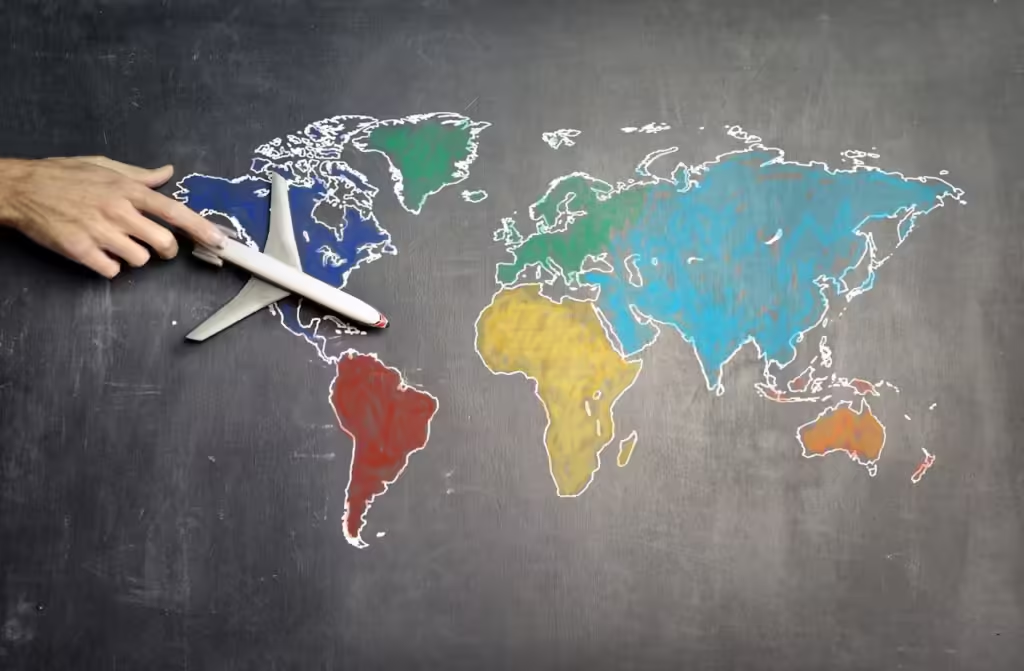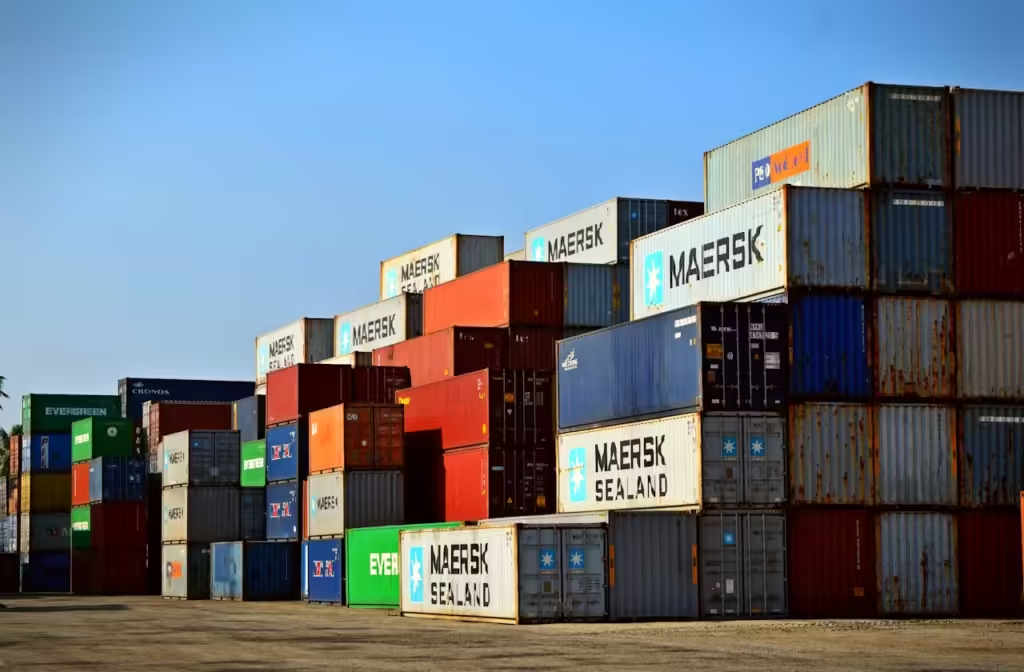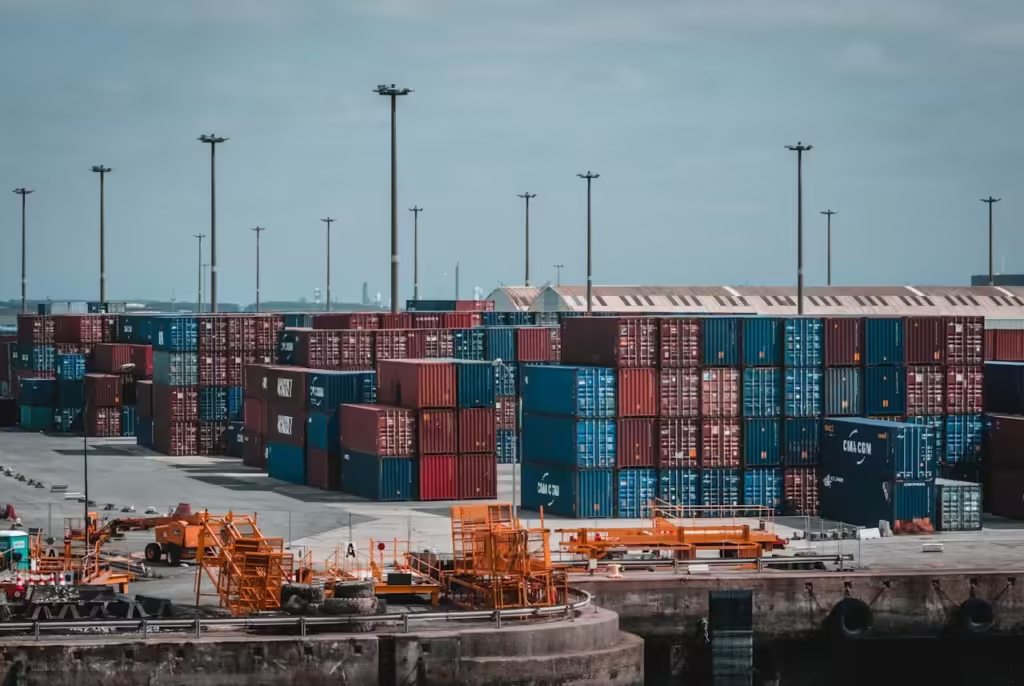Globalization is as old as humanity and trade itself. People have been trading with each other since they have been producing goods. Major milestones in trade and economy including innovation of the barter system, currency, paper currency and now digital currency conspicuously show that evolving ideas and technology have shaped Globalization.

Modern Globalization is a result of myriad developments in social, economic, cultural, and technological realms. It has been profoundly impacted by state, markets and technology which are humankind’s most distinctive innovations. However, this also means that Globalization has been reliant upon these innovations. The state has used its traditional writ and its absolutism to mould Globalization. International trade has thrived when states want it to and collapses when states want it to or are unable to sustain it. The international trade has always been dependent upon the will of the state.
Globalization as a Process
The process of Globalization is in no way a novel one. Cross-border trade flourished in the 8th Century BCE between Phoenicians (now based in Lebanon) and city-states of ancient Greece. Athens grew prosperous due to this trade. The seals of the Indus Valley Civilization that have been found in Mesopotamia also confirm that long-distance trade existed long before. Trade was done through rivers in modern-day Egypt, Iraq, and China. Many trade routes also developed like the Amber Road that lay between the Baltics and Egypt. However, perhaps two routes profoundly changed the course of globalization and became a precursor to modern globalization.
First, the Silk Road is said to have existed from the First century BCE until the fifteenth century CE. Though many products were traded between China, India and Europe among many others, it got its name after the most sought-after contemporary good. Many current trade practices were used during ancient times to facilitate trade and to draw out maximum profits. The contemporary Chinese emperor refused to share the techniques to produce silk to continue its monopoly on silk production. Trade also became a truly global phenomenon as the Silk Road radically expanded trade. Many towns and cities popped up that were meant to serve the traders, like Samarkand and Baghdad. The current widespread practice of states putting embargoes is also observed in The Roman Empire which unsuccessfully tried to block silk from entering its territory.
Though not many people were involved in its production, silk created many jobs despite being monopolized by the emperor. Many jobs were created for traders, merchants, travellers, and so on. Moreover, even though trade was limited and often interrupted, it connected two extremely distinct places via goods. Second, the Spice Trade that began in the seventh century emerged in the Indian Ocean and the Arabian Sea. Also known as the Indian Ocean trade, it was dominated by Arab traders and supplied spices from Indonesia and India to Europe. The traders used to travel by ships that were pushed by monsoon winds and retreated similarly.
Many political developments in medieval Europe also profoundly impacted global trade. The political will of the Portuguese emperor proved to be groundbreaking as Magellan discovered new routes from Europe to the Indies. Also, the fall of Constantinople in 1453 resulted in all the ancient works of art and science reaching back to Europe which triggered the Renaissance. Subsequently, the scientific revolution took place in Europe.
Modern Globalization is buttressed by developments from the medieval period like the Industrial Revolution, the Age of Discovery and the Scientific Revolution among others. The political theories of liberalism and mercantilism also shaped the global trade that was to follow. This mercantilist viewpoint –that the wealth of the world was fixed and hence to be prosperous you have to steal wealth from others– unleashed Colonialism. Though many scholars don’t include colonial trade in Globalization, it nonetheless gave some important things to global trade such as technological advances. The European colonizers were compelled to invent many such things that proved to be groundbreaking.
By the nineteenth century, many continuous developments in the field of arts and sciences had taken place to unleash the first wave of Globalization. This wave was driven by the British Empire since it dominated the globe. There was also a surge in the case of cross-border investments. Joint stock companies became a common occurrence in large industrial cities. Many infrastructural projects were financed by joint stocks that later became milestones in global trade. This wave of Globalization also produced healthy competition between the companies.
The current incarnation of Globalization has been made possible by numerous developments beginning from ancient times that became building blocks on which the current Globalization rests. The gradual process of Globalization has seen many ups and downs, encouragement and collapses, and troughs and crests. Addressing it as unprecedented makes the early developments in this field meaningless. There would have been no Globalization without the events mentioned above. Thus globalization is a gradual and still ongoing process and not a sudden phenomenon.
Globalization: Three Theories
With the acceleration in the process of globalization, numerous scientific studies have come to assimilate it. The attempt is to theorize the changes that are visible from the annals of modern history and understand their impacts on social, economic and political fronts. Three theories have been propounded– the so-called three waves of Globalization theories –by scholars to understand it, namely globalists (or Hyperglobalists), sceptical and post-sceptical (or Transformationalists). The three theories are related to each other in a way that the latter two theories would have not existed without the first. The sceptical theory is a critical response to the Globalist theory, and the Transformationalist theory somewhat balances itself concerning the two theories. The three theories also overlap with each other and are not completely mutually exclusive.
To begin with, the Hyperglobalism theory was the first theory which started to emerge in the 1980s. Attributing to the rapid transformations in the world occurring during the corresponding decade, the theory views Globalization as a phenomenon that alters many of the established structures. It stresses the revolutionary aspects of Globalization that are a result of its encroachment into economic, cultural, social and hence political realms. Globalization, it asserts, has successfully changed the old notion of totalitarianism of the state. The involvement of the state in the planning and execution of its economy is being swallowed up by the interdependence that Globalization has unleashed.

As a result, the political restrictions on the movement of people, goods and capital have been reduced. Many globalists attribute such a change to the ease of flow of capital across borders hence undermining it. The Globalist perspective of Globalization relies overly upon the economic part of it and attributes its implications to cultural, social, and political fronts. They also assert the increasing involvement of international organizations, such as the UN, in matters traditionally prerogatives of the state. Many global social movements also impact the behaviour of the states. As a result, many realms that have traditionally been involved such as the national economy, national development, identity, and sovereignty are being challenged.
The sceptical are concerned with the abstract nature of the globalist perspective, arguing that these views are thin on empirical substantiation and make sweeping claims about processes as if they affect all areas in the world evenly. They argue that the beneficiaries of Globalization are limited to the entities already benefitting from existing structures. The reach of Globalization to the poor and trodden and the advantages that they can enjoy is extremely limited and even non-existent. This cannot be termed as Globalization but Internationalization.
Some proponents of this theory argue that Globalization is contingent and can take a different direction. They further argue that the Globalization of the world economy is not unprecedented as claimed by Hyperglobalists. The world, they point out, was more globalized and open between 1870 and 19141 and the World War made it less globalized.

As far as the erosion of state sovereignty is concerned, the sceptics say that the state unevenly adapts to Globalization i.e. they might lose sovereignty in some way but largely retain it using features of Globalization itself. They use empirical data and evidence to show that the state continues to be somewhat totalitarian in many ways and that it continues to play a dominant role both within its boundaries and as an agent of Globalization.
The international organizations that globalists point out to have reduced the sovereignty of the state are viewed as hypocritical and meant to serve the already powerful nations. The rise in fundamentalism around the world (a.k.a. neo-fundamentalism) is a response to Globalization and shows that the integration of the world is not acceptable to all. The rise in nationalism is also a response to increasing international interference in domestic affairs.
Then some people share the pessimism and scepticism of sceptics on Globalization but cannot ignore the changes they see in before them. They are called the Transformationalists who largely take a middle ground between Hyperglobalists and Skepticals. They form a complex picture of Globalization where it is not seen as inevitable and bringing a dramatic change, but occurring and evolving. They argue that contemporary globalization is historically unprecedented2 but a historical process that is slowly conquering the world. Economies, according to them, are becoming deterritorialized and more and more involvement of foreign companies is making the flow of capital easy.
The various MNCs and non-territorial organizations are impacting the traditional position of the state and hence sovereignty is being, not necessarily eroded but reconstituted. The diminishing distinction between the global and local is being driven by Globalization which in turn is reconstituting the role of the state. International organizations are not seen as a platform for snatching away the rights of the state but as a platform to share sovereignty hence further adding to reconstitution of state power.
The purpose of boundaries, like that of the state, is being reconstituted. They are primary makers of modern life but global social changes also impact their relationship with the people. Transformationalists don’t compartmentalize Globalization as either working or not working at all. They see it as an important force that is integrating the world and reforming it. Globalization is not seen as sweeping and inevitable but contingent and uncertain.
Globalization is a force of unification, building a sense of worldwide community. It attempts to unify the World through many spheres such as economy, culture, politics and so on. At the inception of the modern form of Globalization, in the nineteenth and twentieth centuries, much speculation was made about the inevitability of the prevalence of a sense of globalism and the erosion of nationalism. However, having a look at the current scenario it is clear that nationalism is in a mode of resurgence. So where did we go wrong?
Nationalism and Globalization
The assumption that nationalism and globalization are counter-productive is a colossal mistake. We are currently witnessing a surge in both of them. Nationalism and globalization are by-products of the same phenomenon – scientific progress. Both of them are a result of the modern technologies that have been improving communication and hence eliciting inclusiveness. Both of them thrive on the same tools– better communication and accessibility. For instance, the very modes of information that give us a sense of being a global citizen are very similar to those giving us a sense of being a citizen of a country such as the internet, news platforms, social media, and others such as physical presence of institutions like the UN and Human Rights Groups in case of global and in case of state, institutions like police stations, government offices etc.
The purpose of Globalization is to encourage social, cultural, economic and political integration of numerous nation-states. Nationalism, on the other hand, attempts to do the same but at the national level. More precisely, nationalism is a theory of political legitimacy which requires that ethnic boundaries should not cut across political ones and that ethnic boundaries within a state should not separate power holders from the rest.3 Though integration of people is not the intentional purpose of nationalism, it is a side-effect of the assertion of the totalitarianism of the state. Nationalism is also accompanied by the increase in social entropy of the various subunits of society.
To understand how Globalization has helped nationalism to surge in recent years, we have to look at the rise of nationalism in medieval Europe and how it has traditionally been practised. Nationalism is an industrial phenomenon- i.e. it only came into existence after the Industrial Revolution. It was meant to increase the political legitimacy of the state. Contrary to popular perception, neither state nor nationalism has always been there. As Hegel puts it, ‘first none had a state, then some had it and finally all have it’. A major purpose of the state, among others, is to maintain and facilitate the division of labour to ensure production and that of nationalism is to maintain its legitimacy.

This legitimacy is maintained by using methods of mass communication. For example, everyone is cognizant of the state having a monopoly on legitimate violence. But, as Gellner says, the purpose of nationalism is to maintain a monopoly over legitimate education4. This monopoly is put into practice by modes that are a direct result of Globalization. For example, education is provided through the use of modern technologies of printing, smart classes etc. Nationalism also explains why many governments around the world have vied for a monopoly on the distribution of information (hence restricting freedom of the press). The abstract nature of nationalism is the reason why states want to have a monopoly on such fronts. The state exists around us but nationalism is present in our minds. Nationalism is the institutionalization of hate. It is also a one-way communication from the state to the public.
Nationalism and Globalization are perfectly compatible with each other. Both, in a sense, give rise to Benedict Anderson’s celebrated ‘imagined communities’. Both of them assert their supremacy. Both of the phenomena are also quintessentially modern and both of them have been centred in the West, hence blurring much difference between Globalization and Westernization, at least on cultural and social fronts. And even for some scholars like Ellie Kedourie, nationalism is a form of Westernization in itself, because it incorporates a model of governance and state legitimacy originally envisioned in Western Europe.
Nationalism is also seen as a response to Globalization. Since Globalization rests itself on mass consumerism, it has encouraged large-scale migration of people in search of better jobs. It is accompanied by a fusion of mostly a non-indigenous culture into an indigenous one. This kind of nationalism is mostly seen in contemporary Europe. In the Islamic World, on the other hand, Westernization accompanied by Globalization is a problem for staunch nationalists. Nationalists use the very tools of Globalization to repel it hence giving rebirth to nationalism. For example, the Ayatollahs in Iran assert their nationalism by being bombastic about a nuclear bomb.
All around the world, nationalists have used the products of Globalization to assert their nationalism. The pair of Globalization and nationalism have accommodated each other to give rise to a peculiar scenario where both of them, traditionally seen as contrary to each other, have encouraged each other.




